How soldier-cyclists use their military training to become better riders
Military training is all about pushing to the limits of exhaustion while executing life-and-death decisions. Here, battle-ready riders break ranks to share their secrets with Dr Josephine Perry
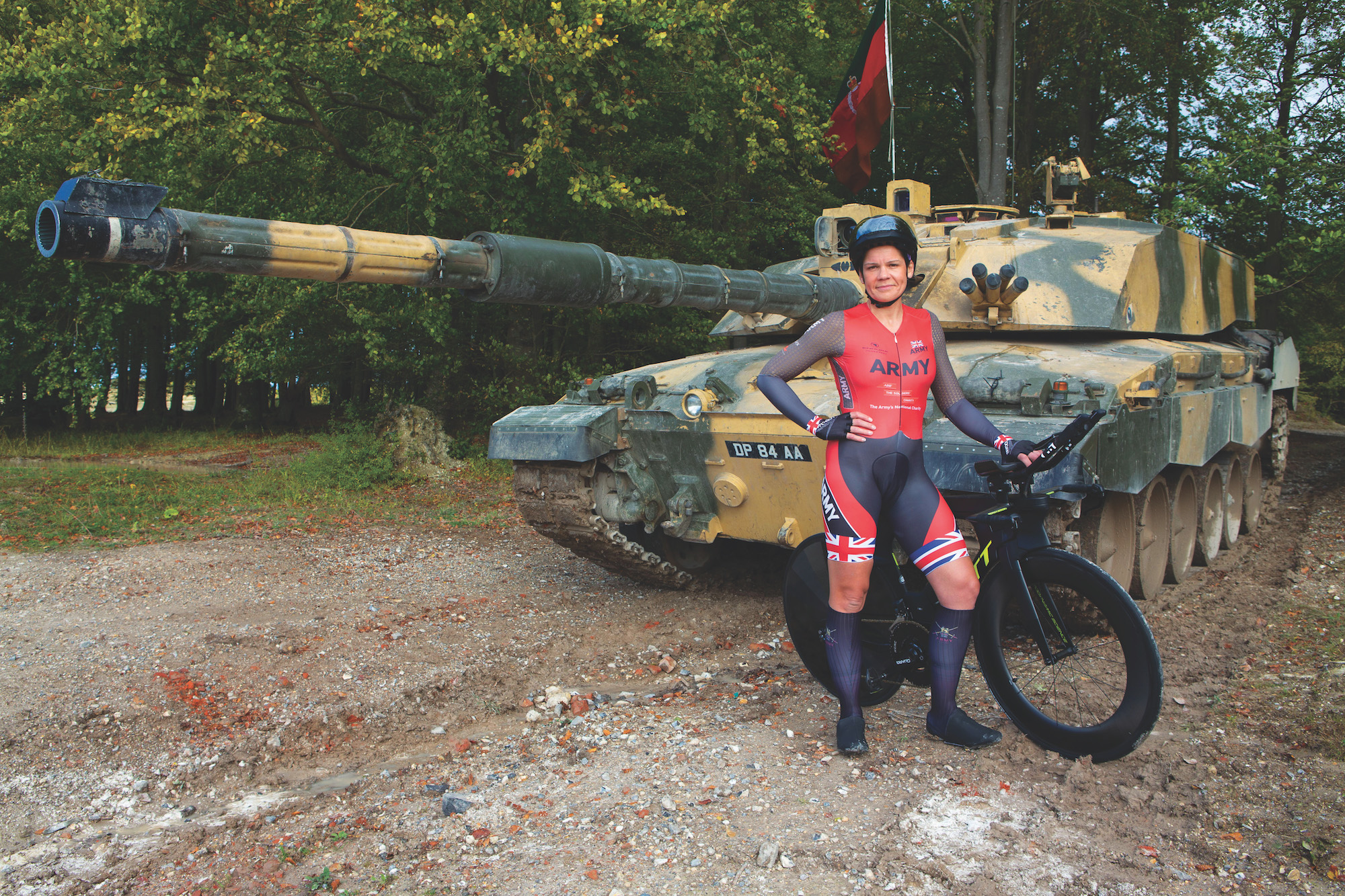
VO2 max test takes us all the way to total exhaustion - in theory. But as soon as we’ve recovered, we find ourselves suspecting that there may have been a little more in the tank. Did we really need to stop? Well, there is one group of riders who never have any such doubts. They know with absolute certainty that they can and will push themselves to true exhaustion. They are military riders - and there is a huge amount we can learn from them.
>>> Subscriptions deals for Cycling Weekly magazine
Years of training in planning, decision-making and coping with psychological stress endow services athletes with the ability to push themselves to the limit. Here, we speak to navy, RAF and army personnel who share nine of the training secrets that have made them high-achieving and super-gritty bike racers - all principles that we can put into practice. Are you tough enough? It’s time to find out.
1. Train for resilience: Make it harder
Coping with the tough stuff is what the military excel in. Operatives’ resilience is built up so that when they suffer a setback, they can find their way round it. This is essential for racing cyclists too.
Dominic Micklewright is a professor of sport and exercise psychology at the University of Essex who, prior to entering academic life, spent 10 years in the Metropolitan Police and seven years as a submariner and diver in the Royal Navy. He saw how the military develops resilience in their personnel through adversity training.
"A group of trainees would run out of the base, often with some difficult peripheral task such as carrying a log or heavy casualty that must never touch the ground," says Micklewright. "After going out for whatever distance was determined, they would begin the return journey to base, building up the expectation that the end was in sight — before having to run straight past the base entrance for more of the same." The end is always further; the extra mile is a matter of course.
Get The Leadout Newsletter
The latest race content, interviews, features, reviews and expert buying guides, direct to your inbox!
"For anybody who has experienced this exercise,” adds Micklewright, "psychologically it is very challenging and demoralising."
The point of this apparent torture is not so much to test physical capability but endurance and psychological strength. The tactics work. Wing Commander Craig White, a training officer in the Royal Air Force, saw first-hand how this adversity training helped when he was in the RAF cycling association.
"Our riders had lots of mental strength from the coping strategies and resilience they had developed to deal with deployment," he says. "When we are used to being pushed to our limits, to the edge of our capacity, that easily crosses over to other spheres of our lives."
2. Plan for the worst case scenario
Many of us ‘wing it’ when it comes to racing. We get away with it because it is usually not life and death. In the military, though, winging it gets people killed. The current national 24-hour time trial champion and record holder is known to most cyclists as Minty — in her day job in the army, she is Lieutenant Colonel Christina Murray.
In this military role, Murray plans everything in detail, working through every scenario so she can test, adjust, adapt and overcome if and when that situation arises. She uses these scenario planning skills extensively in her long-distance racing too.
>>> Cycling Weekly is available on your Smart phone, tablet and desktop
"At the National 24, my support crew will vouch that I had things intricately and exhaustively planned," says Murray. "Beyond the usual of knowing the route inside out, preparing route cards and having a detailed feeding plan, I had also run through all the ‘what if’ scenarios — or ‘actions on’ as we would call them in the army."
Meticulous preparation must address all contingencies. "Actions on puncture, illness, sickness, tiredness, wanting to stop, kit failure, rain and cold had all been thought through by me and written down to inform them what to do," explains Murray. "I gain a huge amount of confidence and reassurance from having gone through a thorough planning cycle."
For Micklewright, this scenario planning is essential for both military and cyclists, as it prevents us freezing in the moment: "It seems tedious at the time but what is developed are well-rehearsed responses to potential scenarios that can be automatically enacted with little thought required."
Many of us practise puncture changes, but how many outside of pro race teams plan for more advanced contingencies such as making an early break or deliberately slowing down the pace — or how to respond if others do so? Thinking up a variety of scenarios and repeatedly practising through simulation can have a decisive benefit.
3. Get comfortable with being uncomfortable
Given that most situations the military train for include an element of uncertainty, commanders have to select those who endure and respond well when under extreme stress. Micklewright regards this as being comfortable with being uncomfortable. "Inexhaustible determination despite severe fatigue and challenging conditions - a key trait gained in the military from particular training and experience - is directly applicable to high-performance endurance sport."
Once you are used to discomfort and can keep going regardless of what is thrown at you, you can be more effective, and far more resilient, when you come up against barriers or setbacks.
"When you have marched across Salisbury Plain with a 60lb Bergen on your back," says Murray, "or slept in the open in Wales in December in the rain, then you are pretty good at coping with discomfort and building up your robustness and fortitude."
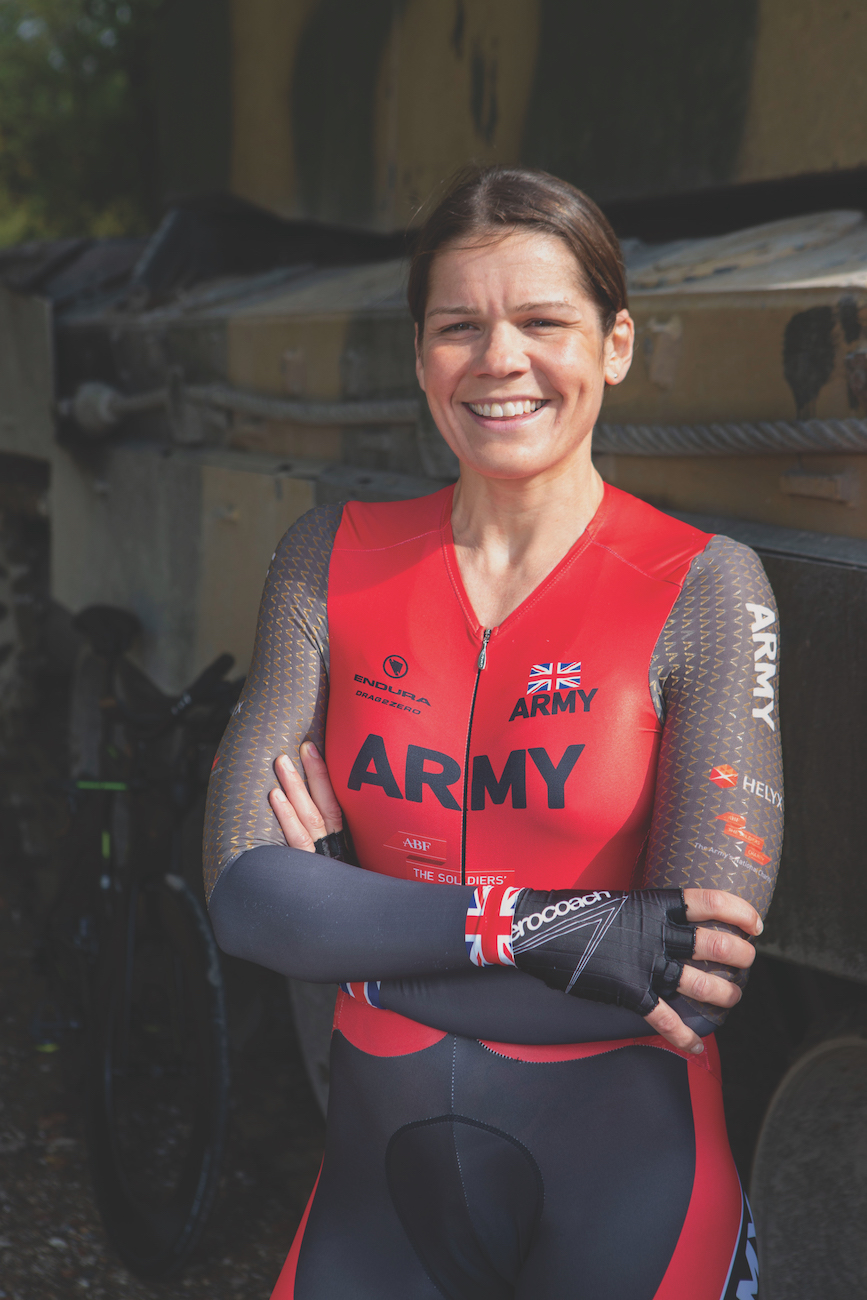
This resilience kept Murray pushing through the pain in this year’s National 12-hour champs. "The last three hours were agony but a text from a friend reminding me that ‘pain is only temporary’ made me feed off that pain. You aren’t going to achieve your goals by being comfortable."
4. Commit to the plan, defeat fear
Discipline is critical in the military, and our army, navy and RAF athletes all highlight its importance in both their work and cycling "Of all the things that I feel my military service has brought to my sport, the most important is discipline," says Murray. "We describe discipline as ‘the primary antidote to fear’ which means we do the right thing even under the most difficult of circumstances."
Total commitment to the plan is the minimum requirement. "If someone says, ‘I want you to ride this bike until you can’t turn the pedals any more,’ I’d expect 95 per cent of soldiers to do exactly that - and probably vomit in a bucket at the end! I’m probably quite easy to coach in that regard because if someone tells me to do something, then I’ll do it. Fastidiously so."
Wing Commander White has also seen the benefits of discipline: "Among the top cyclists I’ve ridden with in the RAF, I could see how the self-discipline transferred directly over to their riding. We were based in RAF Lossimouth, in north-east Scotland, but never did I hear a rider say they wouldn’t go out because of the weather."
5. Trust in your team
Teamwork and feeling like you belong bestows psychological safety - key to performance in both military and civilian life. Wing Commander White is currently working on a PhD in resilience and has studied 243 members of the RAF to map their self-identities and log how many ‘groups’ they regard themselves as belonging in. He found that the fewer groups someone belonged to, the higher their resilience level. White uses the example of a flying squadron: “Each one has a really strong team identity, with the same kit, same badges and a shared history. This will be really beneficial to their levels of resilience."
In the same way, belonging to a club or race team could make all the difference. "If you don’t feel like you belong to the team or you don’t have that connection with the others, you’ll lose about five per cent of your resilience. At the end of a long race, that is significant."
6. Reckon with the risks
When we get into our riding and start performing well, it can begin to take over our self-identity, becoming
increasingly important to us - sometimes too important. Those in the military, where there is regular exposure to the fragility of human life, are able to keep their cycling in context.
For Murray, army life has influenced her cycling success by showing both the worst and best of life. "In the military, we have a responsibility for the welfare and wellbeing of our people, to a level that is far greater than is usual in the corporate world."
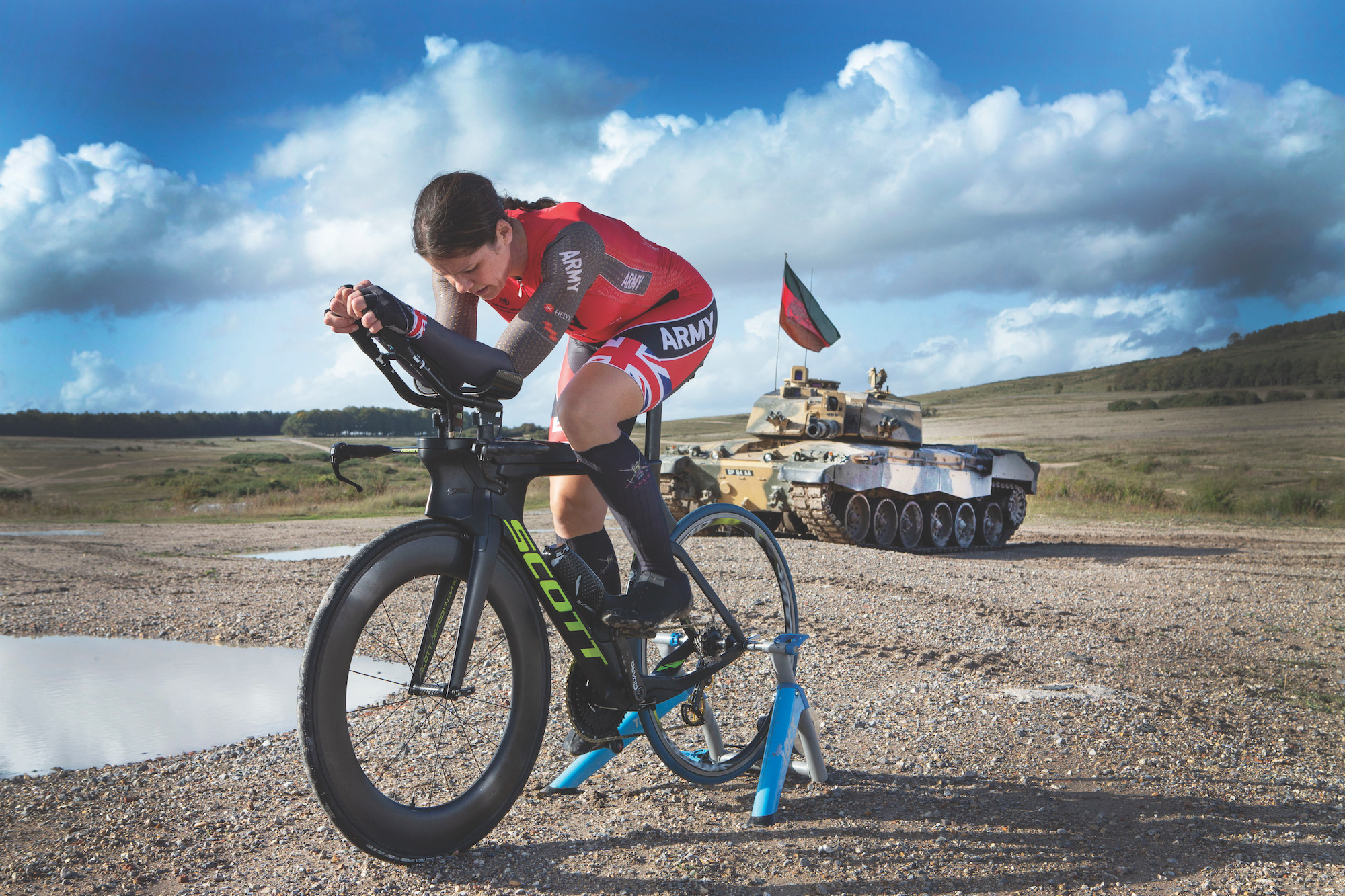
With risk comes responsibility. "Other people’s hardship and misfortune can put your own situation into context and make you want to live each day like it is your last. Conversely, you witness some amazing feats of courage, determination and bravery, which make you want to elevate your existence for a brief period of time. I push myself to elevate my existence, to achieve more than I thought possible."
In this way, sport never becomes self-absorbed or wholly self-congratulatory. "I don’t do my sport for other people, or for praise or congratulation. I honour other people in my mind and am motivated by those who, due to death, sickness or disability, do not have the opportunity that I have."
7. Put your brain through its paces
When the army wanted to know how to improve the ability of their soldiers to multi-task and build resistance to mental fatigue, it was Professor Samuele Marcora they went to see. Marcora is a psycho-biologist at the University of Bologna. He spends his time trying to figure out what makes athletes and military personnel work harder for longer.
Marcora’s first studies were for the army but run on civilians who cycle. "We gave one group very traditional training of one hour of turbo training three times a week. The second group got the same training but while on the turbo they were asked to do cognitive tasks on a modified keyboard balanced on their bars looking up at a screen."
The additional mental chore paid off. "After 12 weeks the first group had increased their time to exhaustion by about 50 per cent. The cognitive task group improved by twice as much."
Marcora is now working on creating technology so this training can be done on the move using sound stimuli. The benefits the army desire are the ability to multi-task while better coping with fatigue, but the enhanced endurance could help cyclists too, particularly long-distance riders.
It isn’t an easy route, though. The cognitive tasks have to be dull in order to induce mental fatigue, and this can strip the pleasure from the training. Alex Hutchinson, a sports writer who undertook brain endurance training when he was writing his book Endure, could see the evidence base was growing - and yet wasn’t a convert. "It is so hard and boring that it is no shortcut [to gains]. You have to work and suffer for it."
8. Endure all the stresses in training
The image we have of military strategists huddling over a map to work out tactics is applicable to cycling too. It is essential for us to be able to cope under pressure. "The military want their guys to get lots of experience of each potential situation," says White. "If you are shot at for the first time, you can’t risk freezing with fear or not being able to function to make a good decision." This applies to cycling, as practising everything under realistic conditions makes us much more likely to make the best decision come race day.
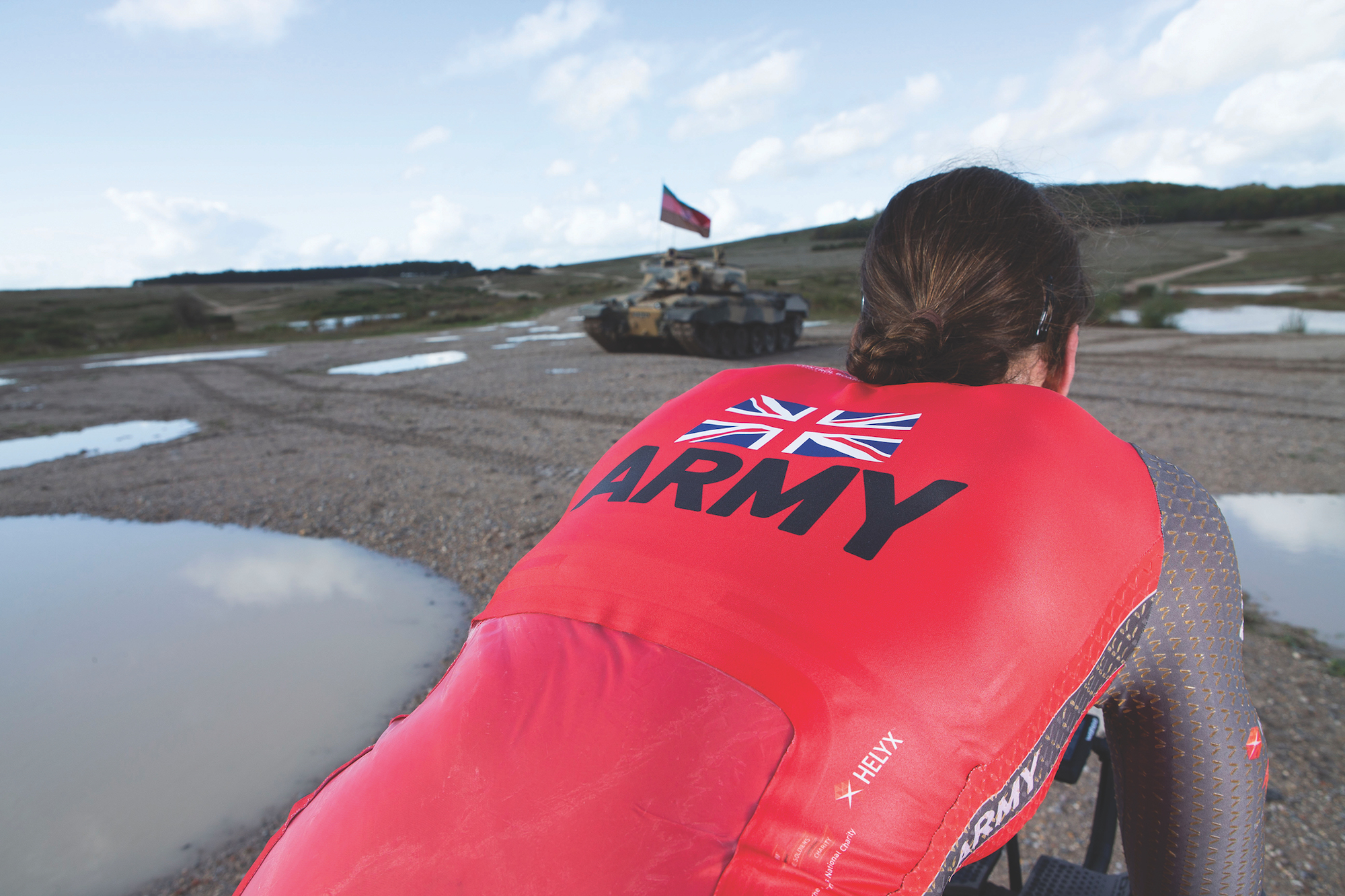
Used to functioning well on little sleep, Murray went into 24-hour racing with an important advantage. "Having dug trenches for four days non-stop in Norfolk and sat wide awake in the back of a stupidly hot and noisy Hercules aircraft while we flew around various part of the Middle East for 16 hours, I know what the human body is capable of when the adrenaline kicks in and you need to stay awake."
In the military, next to nothing is left to chance. "We conduct step-by-step rehearsals in the army, which gives us the confidence and muscle memory for when that activity is undertaken for real. I drew huge strength from knowing what I had achieved in the past, albeit in a military context, and resolutely decided that one late night wasn’t going to break me."
9. Wrap yourself in a mental bubble
When the military go into battle, they block out day-to-day life and totally focus on the job at hand. Doing this in cycling is incredibly difficult, but riders who can get into a self-protective bubble are able to stay mentally strong.
Murray is Scottish, and so the mantra she used at the National 24 was ‘keep the heid [head]’ - with the aim being to stay completely focused at all times and separate out the emotional from the practical. "My coach said he’d never seen me so cold and detached, but in the military if you don’t separate out the emotional from the practical, you can find yourself struggling when faced with a life-and-death situation. We have to almost package our emotions in a box to deal with the practical situation first and then come back to the emotional side later."
Words: Dr Josephine Perry
This feature originally appeared in the print edition of Cycling Weekly, on sale in newsagents and supermarkets, priced £3.25.

Thank you for reading 20 articles this month* Join now for unlimited access
Enjoy your first month for just £1 / $1 / €1
*Read 5 free articles per month without a subscription

Join now for unlimited access
Try first month for just £1 / $1 / €1
Jonny was Cycling Weekly's Weekend Editor until 2022.
I like writing offbeat features and eating too much bread when working out on the road at bike races.
Before joining Cycling Weekly I worked at The Tab and I've also written for Vice, Time Out, and worked freelance for The Telegraph (I know, but I needed the money at the time so let me live).
I also worked for ITV Cycling between 2011-2018 on their Tour de France and Vuelta a España coverage. Sometimes I'd be helping the producers make the programme and other times I'd be getting the lunches. Just in case you were wondering - Phil Liggett and Paul Sherwen had the same ham sandwich every day, it was great.
-
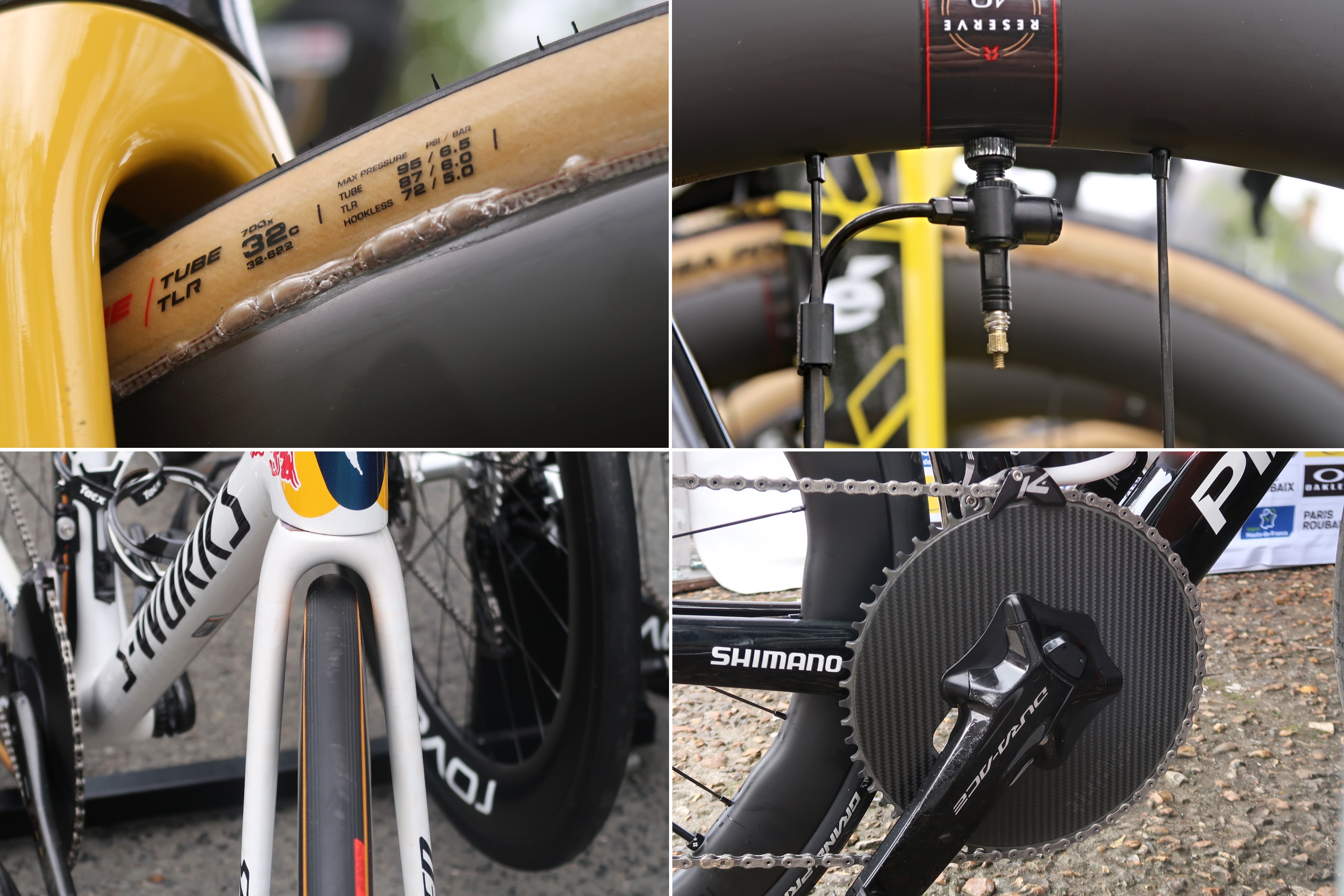 Unreleased wheels, monster chainrings, and surprisingly skinny tyres: Six tech insights from Paris-Roubaix
Unreleased wheels, monster chainrings, and surprisingly skinny tyres: Six tech insights from Paris-RoubaixHere's all the tech mods we spotted at the men's 'Hell of the North'
By Tom Davidson Published
-
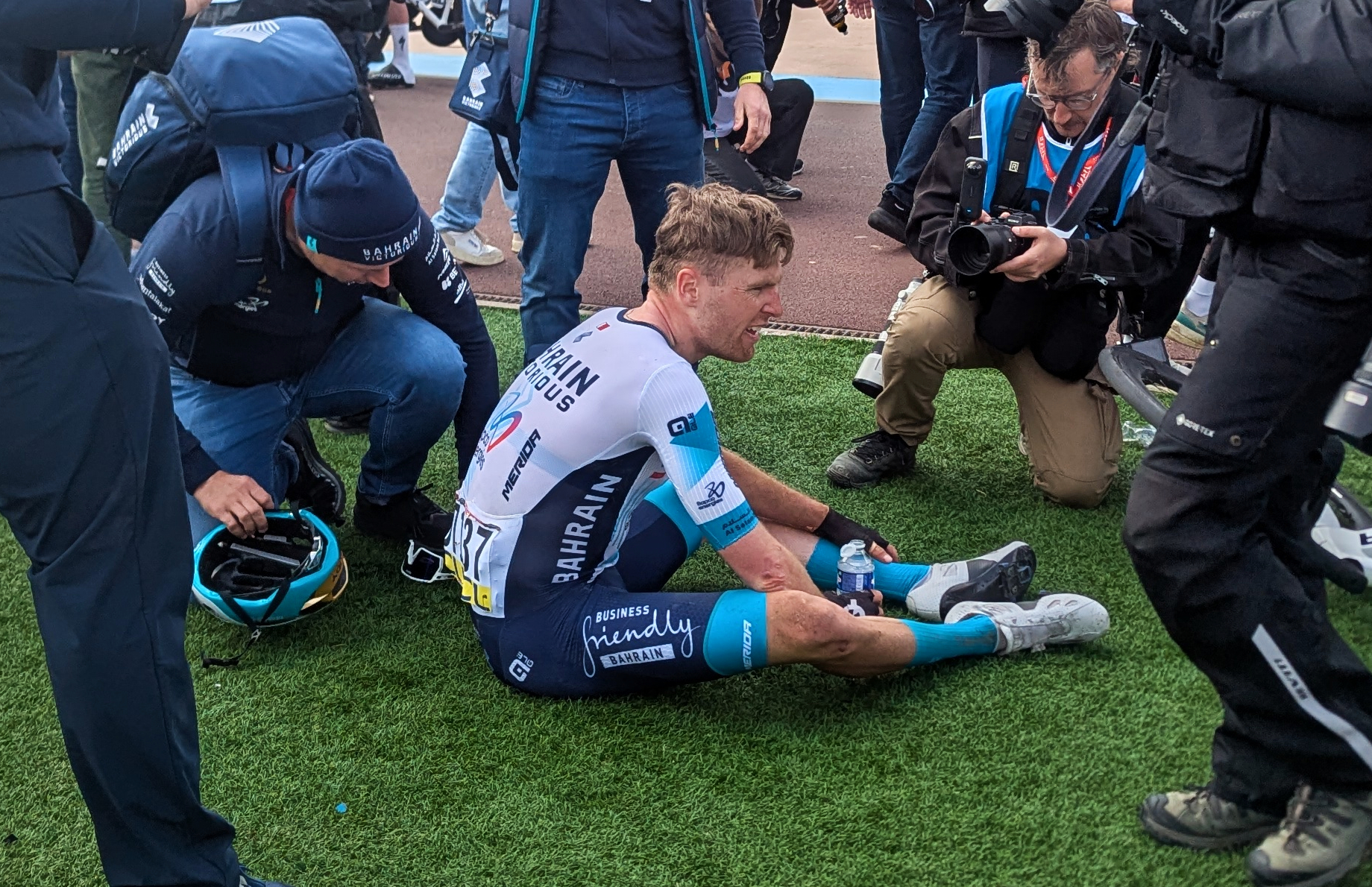 'I'll take a top 10, that's alright in the end' - Fred Wright finishes best of British at Paris-Roubaix
'I'll take a top 10, that's alright in the end' - Fred Wright finishes best of British at Paris-RoubaixBahrain-Victorious rider came back from a mechanical on the Arenberg to place ninth
By Adam Becket Published